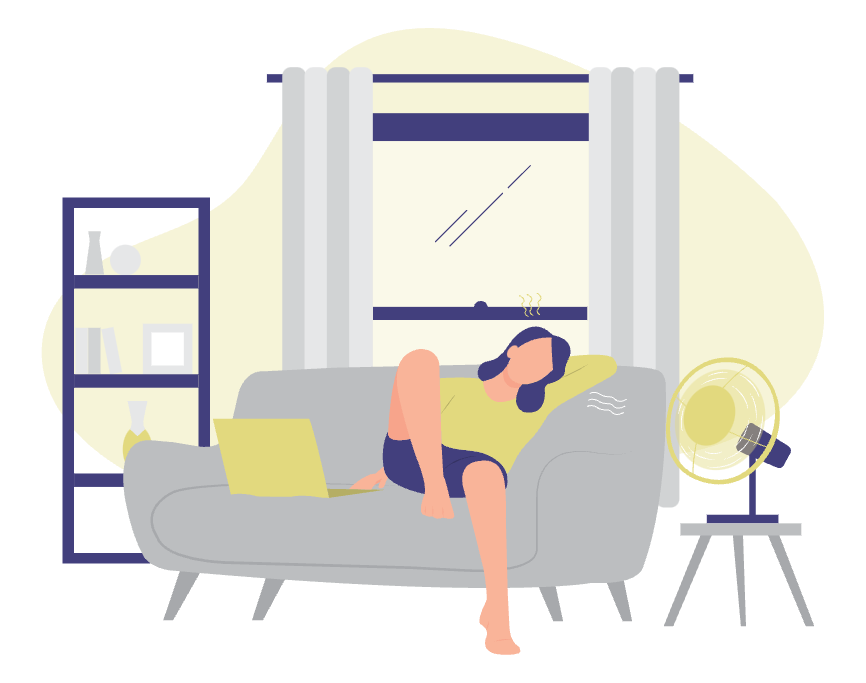“The loneliest moment in someone’s life is when they are watching their whole world fall apart, and all they can do is stare blankly.”
-Unknown, but frequently attributed to F. Scott Fitzgerald
A debilitating thing happens when we begin to feel like our efforts don’t make any difference.
At first, we might try even harder to change our situation and circumstances.
But over time, repeated unsuccessful efforts give us the sense that our efforts will always be unsuccessful. Convinced of the futility of our actions, we simply stop trying.
We give up.
This is learned helplessness.
The concept of learned helplessness was first hypothesized in animal experiments in which dogs were kept in an enclosure with two sides. Researchers delivered an aversive electric shock to the dogs, who immediately jumped over the small divider to the side that was not electrified. However, when researchers then electrified the “safe” side so that the dogs were shocked no matter what they did or where they jumped, the dogs stopped trying to escape the shock. They remained where they were and simply endured the pain.
They gave up.
Since the 1960s when learned helplessness was first suggested as an explanatory mechanism for both animal and human behaviors, it has been studied in populations as diverse as students, athletes, intimate partner violence survivors, and healthcare professionals. In fact, in a recent study (Qourrichi, Ouazizi, & Saaliti, et. al, 2024), researchers found that learned helplessness among HCPs was correlated with a decline in psychological well-being at work and with an increase in psychological distress..
As one participant in another study (Fowler, Vara & Ng, 2024) said: “The cumulative effect is a little bit soul destroying and I’ve noticed that my capacity outside of work to deal with other things [ … ] has probably suffered.”
Does this experience resonate with you?
Some of the indicators of learned helplessness are:
- procrastination;
- lack of, or lowered, motivation;
- frustration;
- unwillingness to try; and
- lack of effort.
There is emerging research that suggests that helplessness is not actually learned from repeated, uncontrollable exposures to negative stimuli but that our “freeze” response is activated in those situations. This explanation is accumulating supportive evidence, though the term “learned helplessness” is still widely used, as it is in this article.
Although learned helplessness can be debilitating and distressing, there are strategies you can use to combat it.
1) Understand the phenomenon of learned helplessness and consider whether it may be operating in your life and influencing your decisions.
2) Extend compassion to yourself and others if you or they are experiencing learned helplessness. Whether it is genuinely learned or is a more instinctual response, it is naturally occurring and not suggestive of fault or weakness.
3) Be attuned to “all-or-nothing” thinking. It is rarely true that nobody cares, nothing will ever change. These kinds of thoughts are cognitive distortions. You can challenge these distortions through asking yourself:
- What is the evidence that supports those thoughts?
- And what is the evidence against those thoughts?
- If a friend told you that they were having those sorts of thoughts, what would you say to them?
4) Seek out a reliable mentor or source of social support.
5) Take a break and do something in which you excel.
6) Consider whether you would benefit from coaching.
7) If you try to resolve feelings of futility and helplessness and find that the feelings persist, seek out a trained therapist or counselor.
Remember that learned helplessness may occur naturally, but it can be reversed deliberately. I invite you to begin to take steps to reclaim your sense of self-efficacy and control.
Additional Resources:
Physician Support Line (1-800-409-0141) is a free and confidential support line run by volunteer psychiatrists. It is open Mon-Fri (except federal holidays) 8:00 AM-12:00 AM EST. https://www.physiciansupportline.com/
Physicians Anonymous is a resource offering 1:1 coaching and free anonymous support groups. It also maintains a blog that includes firsthand stories intended to reduce shame and stigma. https://physiciansanonymous.org/
The National Alliance on Mental Illness (NAMI) has published a guide for healthcare professionals. The guide includes strategies for building resilience, promoting wellness, and accessing support. https://www.nami.org/Your-Journey/Frontline-Professionals/Health-Care-Professionals/
Further Reading:
Fowler, L., Vara, A., & Ng, L. (2024). Psychiatric trainees’ experiences of workplace violence: qualitative analysis. BJPsych bulletin, 1-6.
Qourrichi, A., Ouazizi, K., Saaliti, E., Ait, D., Ali, L.E., Hilal, M., …& Khabbache, H. (2024). The effect of learned helplessness on the psychological health of healthcare workers. J Health Soc Sci, 9(1), 129-143.
Xue, S., Gu, Q., Zhu, K., & Jiang, J. (2023). Self-compassion buffers the impact of learned helplessness on adverse mental health during COVID-19 lockdown. Journal of Affective Disorders, 327, 285-291.

Leave a Reply